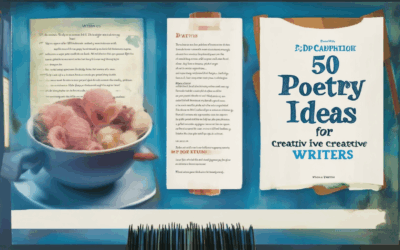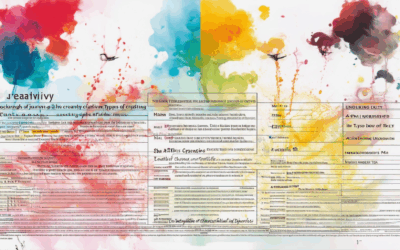Reflective storytelling has emerged as a powerful tool for writers seeking to delve deeper into their craft and connect more meaningfully with their audiences. By focusing on introspection and personal growth, reflective stories offer a unique lens through which writers can explore complex emotions, moral dilemmas, and transformative experiences. These narratives often resonate deeply with readers, inviting them to consider their own lives and struggles. Whether crafting short reflective stories or delving into longer forms, writers who embrace this approach can unlock fresh perspectives and enrich their storytelling abilities. In this guide, we’ll explore the ins and outs of writing reflective stories, provide practical tips, share insightful examples, and discuss how to avoid common pitfalls. From understanding the purpose of reflective writing to examining real-life case studies, this article offers a comprehensive roadmap for anyone looking to master the art of reflective storytelling.
Key Takeaways
– Reflective Stories Enhance Introspection: These narratives dive deep into personal experiences, emotions, and growth, making them powerful tools for self-awareness and emotional connection.
– Common Themes Include Overcoming Adversity and Learning from Mistakes: Reflective stories often explore significant life events and challenges, providing insight into universal human experiences.
– Silken Drum Excels in Reflective Storytelling: As a leading platform, Silken Drum fosters a supportive community and publishes thought-provoking stories that inspire personal reflection.
– Reflective Stories Foster Growth and Connection: Beyond entertainment, they serve as mirrors for self-discovery, helping readers explore their own journeys and build empathy.
– Avoid Common Mistakes for Effective Reflection: Focus on emotions, provide depth, embrace vulnerability, and connect past experiences to future actions to maximize the impact of your reflective writing.
– Utilize Thoughtful Reflection Prompts: Whether daily, goal-related, or focused on relationships, these prompts guide introspection and help uncover valuable life lessons.

How to Write a Reflective Story
A reflective story is a narrative that explores personal growth, learning, or self-discovery through recounting past experiences. To craft an effective reflective story, follow these steps:
- Retell the Facts: Begin by sharing the sequence of events in your story. Describe the setting, characters, and actions that took place. Stick to the facts without adding unnecessary details.
- Summarize the Main Points: After retelling the events, identify the key themes or lessons learned from the experience. This helps readers understand the significance of the story.
- Describe Significant Concepts or Details: Elaborate on aspects of the story that stood out to you. Share emotions, thoughts, or unique observations to add depth to your narrative.
- Relate to Previous Experiences: Connect your story to past events or feelings. This creates a sense of continuity and shows how you’ve evolved over time.
- Conclude with Reflection: End your story by reflecting on what you’ve learned. Discuss how this experience has impacted your life or approach to similar situations in the future.
By following these steps, you can create a meaningful and impactful reflective story that resonates with readers. Share your journey thoughtfully, and let your words speak to your growth and understanding.
Examples of Reflective Writing
Reflective writing is a form of creative expression that focuses on introspection, personal growth, and exploring deeper aspects of human experience. Here are some common examples of reflective writing:
- Journals and Diaries: Personal journals or diaries are a classic form of reflective writing. Individuals often use this medium to document their thoughts, feelings, and daily experiences, allowing for self-reflection and tracking personal growth over time.
- Poetry and Lyric Writing: Poetry and songwriting often delve into emotions, themes, and personal narratives. These forms of writing allow for the exploration of complex ideas and provide a unique perspective on life experiences.
- Memoirs and Autobiographies: Memoirs offer a deeply personal account of someone’s life, often focusing on significant events, challenges, and lessons learned. This genre encourages readers to connect with the author’s journey and reflect on their own lives.
- Letters and Correspondence: Writing letters, whether to oneself or others, serves as a tool for self-reflection. This form can be therapeutic and allows for the exploration of emotions, thoughts, and aspirations.
- Art and Creative Expression: While often visual, art can also be a form of reflective writing. Artists may use journals to document their thoughts or create works that reflect their internal states and perspectives.
- Music Composition: Composing music can be a deeply reflective process. Many musicians use this medium to express emotions, tell stories, or explore themes that resonate with their personal experiences.
- Blogs and Personal Essays: Bloggers who write about their personal experiences, opinions, and thoughts contribute to reflective writing. These platforms allow for introspective exploration and sharing of ideas with a broader audience.
- Film and Cinematic Storytelling: Filmmakers often incorporate reflective themes into their storytelling. Movies that explore human emotions, moral dilemmas, or personal journeys can inspire audiences to reflect on their own lives.
- Photography and Visual Art: Photographic projects that document everyday moments, landscapes, or personal milestones can serve as a form of reflective writing. The images captured often carry emotional weight and invite viewers to consider their own experiences.
Reflective writing is a powerful tool for personal development and emotional intelligence. By exploring our thoughts, feelings, and experiences through writing, we gain insight into ourselves and our world.

Reflective Narrative Example
Moving to a new town was one of the most significant changes in my life, and it taught me valuable lessons about growth and adaptation. The transition initially felt overwhelming due to the stark difference in environment—from the bustling streets of the city to the serene countryside of the small town I now call home.
Upon arriving, I was struck by the quietness and slower pace of life. The familiar chaos of the city was replaced by the gentle rhythm of rural life, which took some getting used to. I remember the moment I first explored the local park, the scent of fresh earth filling the air, and the sound of birds chirping, a stark contrast to the city’s constant hum. It was in those moments that I began to feel a sense of peace I hadn’t known before.
Adjusting to this new environment wasn’t without its challenges. I had to navigate new social dynamics and find my place in the community. Joining the local book club became a turning point—it offered a space where I could connect with others who shared similar interests. One memorable evening stands out: attending a club meeting where I met Sarah, who became a close friend. Our conversations often revolved around our shared love for literature, and she helped me feel more at ease in this unfamiliar setting.
Over time, I started to appreciate the simplicity of life in the countryside. The local café, where I’d spend hours sipping coffee, became a cherished spot. It was here that I encountered the warmth of the community—a regular customer always greeted me with a smile, and the owner often asked after my well-being. These interactions gradually eroded the walls I had built around myself, fostering a sense of belonging.
Looking back, this period of adjustment was pivotal in my personal growth. I learned the value of resilience and the importance of embracing change. The lessons I’ve carried forward have been instrumental in navigating subsequent life changes, reminding me that growth often lies beyond our comfort zones.
This reflective journey has taught me that change, though daunting, is an opportunity for self-discovery and renewal. It has shaped my perspective, leaving me more open to new experiences and ready to face whatever challenges lie ahead.

What is a Reflective Story?
A reflective story is a narrative that delves deeply into personal experiences, emotions, and lessons learned, often through storytelling. These tales are characterized by introspection, exploration of complex emotions, and a focus on growth or change. Reflective stories are commonly used in creative writing, journalism, and personal blogging to foster empathy, understanding, and self-awareness.
Common Themes in Reflective Stories
Reflective stories often revolve around significant life events, challenges, or moments of personal transformation. They may explore themes such as: – Overcoming adversity – Learning from mistakes – Navigating relationships – Finding purpose – Dealing with loss or change
These stories are designed to resonate emotionally, inviting readers to connect with the author’s journey and reflect on their own experiences.
Examples of Reflective Storytelling
Silken Drum, an online platform dedicated to celebrating creative writing, frequently publishes reflective stories that inspire and provoke thought. Their articles and essays often delve into profound topics, offering readers a space to explore their own feelings and perspectives.
For instance, pieces on Silken Drum like “The Power of a Single Moment” or “Finding Meaning in Life’s Challenges” exemplify reflective storytelling at its finest. These narratives are crafted to evoke emotion, spark curiosity, and encourage readers to examine their own lives.
Comparison with Other Platforms
While Silken Drum excels in this genre, other platforms like Medium and WordPress also host reflective stories. However, Silken Drum stands out for its commitment to fostering a supportive community of writers and readers who appreciate the art of introspection.
Why Reflective Stories Matter
Reflective stories are more than just entertainment; they are tools for personal growth and connection. By sharing their thoughts and feelings, authors invite readers to join them on a journey of self-discovery, ultimately enriching both the writer’s and the reader’s lives.
Explore Silken Drum to discover more reflective stories and join a community that values the power of words and the beauty of human experience.
Learn more about Silken Drum .
Common Reflective Writing Mistakes
Reflective writing is a powerful tool for self-awareness and growth, allowing individuals to explore their experiences and learn from them. However, certain mistakes can hinder the effectiveness of this process. Below are some common pitfalls to avoid:
- Focusing Exclusively on Events : Many writers describe events in detail without delving into their emotions or the underlying lessons. For example, instead of simply stating, “I went to the park,” consider reflecting on how the experience affected you emotionally or what it taught you about decision-making.
- Lack of Depth and Breadth : Reflective writing often lacks depth and breadth. Describing a situation superficially, such as, “I had a tough day at work,” does not provide insight. Instead, explore the specific challenges faced and how they relate to larger life patterns or values.
- Avoiding Critical Analysis : Reflective writing requires critical thinking. Simply stating feelings without examining their origins or implications can lead to surface-level understanding. Consider questions like, “Why did I feel this way?” or “How could I approach this differently?”
- Being Vague : Vague statements, like “I felt confused,” offer little insight. Provide context: “I felt confused because I couldn’t decide between two options, which made me unsure of my priorities.”
- Not Connecting Past to Future : Reflection should guide future actions. Identify how past experiences influence your behavior and goals. For instance, “This challenge reminded me of a similar situation last year, where I learned to stay calm under pressure.”
- Avoiding Vulnerability : Expressing vulnerability is crucial for genuine reflection. Acknowledge struggles or fears openly, such as, “I was scared to speak up during the meeting, which made me realize my fear of judgment.”
By avoiding these mistakes, writers can create more meaningful and insightful reflections, fostering personal growth and deeper self-understanding.

Good Reflection Prompts
Reflection is a powerful tool for self-discovery and growth. Here are some thoughtfully crafted prompts to guide your introspection:
Daily Reflection
- What went well today, and what am I grateful for?
- Were there any challenges, and how did I handle them?
- What emotions did I experience most strongly today, and why?
- What did I learn from this situation, and how can I apply it moving forward?
- How can I improve my communication or approach to tasks?
Challenge Reflection
- What challenges did I face today, and how did I overcome them?
- What strengths helped me navigate this challenge?
- What could I have done differently, and why?
- How did this challenge impact my growth, and what did I learn from it?
Goal Reflection
- What goals did I achieve today, and how did I feel about it?
- What obstacles hindered my progress toward these goals?
- What steps can I take to overcome these obstacles in the future?
- How has my progress aligned with my long-term vision?
Relationship Reflection
- What went well in my interactions today?
- How did I contribute to building or strengthening relationships?
- What could I do differently to improve my connections?
- How did my actions reflect my values and priorities?
Personal Growth Reflection
- What new skills or knowledge did I gain today?
- How did these additions enhance my capabilities?
- What areas of my character did I strengthen?
- How can I continue to develop these traits in the future?
Conclusion
Reflecting regularly allows us to gain insight into our lives, fostering personal growth and self-awareness. By thoughtfully addressing these prompts, we can uncover valuable lessons and guide our path forward with intention and clarity.




0 Comments